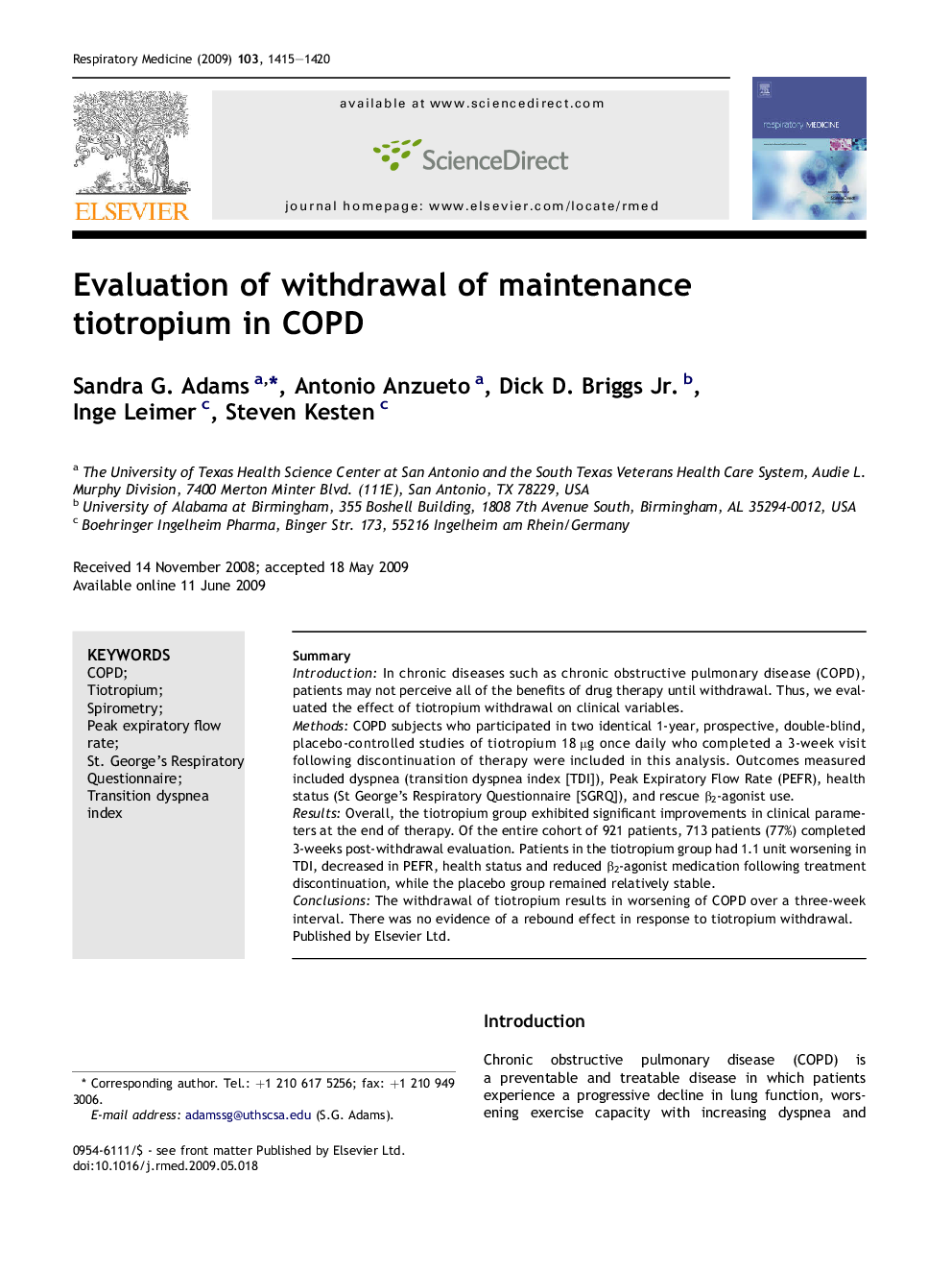| Article ID | Journal | Published Year | Pages | File Type |
|---|---|---|---|---|
| 4210760 | Respiratory Medicine | 2009 | 6 Pages |
SummaryIntroductionIn chronic diseases such as chronic obstructive pulmonary disease (COPD), patients may not perceive all of the benefits of drug therapy until withdrawal. Thus, we evaluated the effect of tiotropium withdrawal on clinical variables.MethodsCOPD subjects who participated in two identical 1-year, prospective, double-blind, placebo-controlled studies of tiotropium 18 μg once daily who completed a 3-week visit following discontinuation of therapy were included in this analysis. Outcomes measured included dyspnea (transition dyspnea index [TDI]), Peak Expiratory Flow Rate (PEFR), health status (St George's Respiratory Questionnaire [SGRQ]), and rescue β2-agonist use.ResultsOverall, the tiotropium group exhibited significant improvements in clinical parameters at the end of therapy. Of the entire cohort of 921 patients, 713 patients (77%) completed 3-weeks post-withdrawal evaluation. Patients in the tiotropium group had 1.1 unit worsening in TDI, decreased in PEFR, health status and reduced β2-agonist medication following treatment discontinuation, while the placebo group remained relatively stable.ConclusionsThe withdrawal of tiotropium results in worsening of COPD over a three-week interval. There was no evidence of a rebound effect in response to tiotropium withdrawal.
